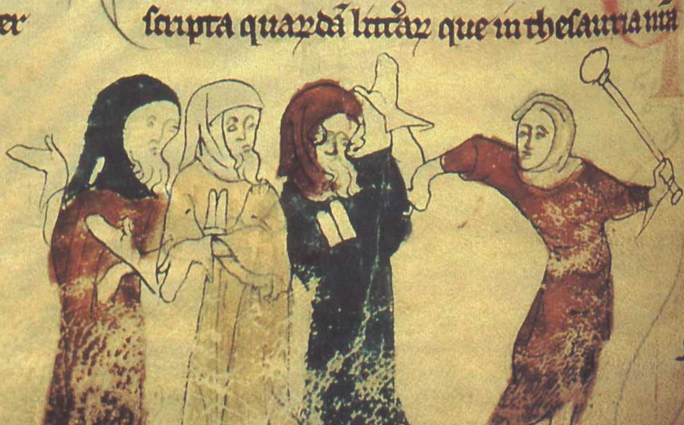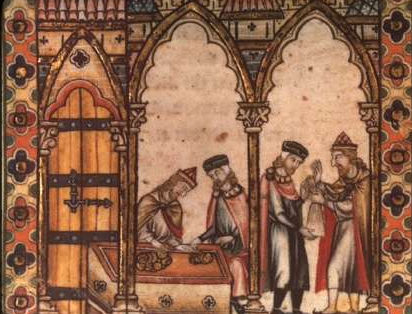The first Jews found their way to Winchester after the Norman Conquest and by the early part of the 12th Century, were an integral part of Winchester society.
Life for those of Jewish faith was extremely difficult in 12th Century England but in Winchester, it appears they found some degree of tolerance
As in so many other towns, the Jews were settled in one area, in this instance they occupied a street close to the castle. It appears that their primary function in the city was as money lenders but no doubt they served in other trades as well. The Jewish community flourished where trade was good, tradesmen wishing to expand could afford to borrow money to do so in prosperous times and were a necessary part of commercial life.
So why was Winchester more tolerant of its Jewish neighbours than other towns in England?
- Winchester appears to have been very tolerant of its Jewish community at a time when other areas of England were not.
- The Winchester Jews escaped the progroms of 1189-90 that so afflicted other towns such as London after a number of the principal Jews of England presented themselves to do homage to Richard I, when he was crowned at Westminster. There appears to have been a superstition against Jews being admitted to such a holy ceremony, and they were repulsed. The rumour spread from Westminster to the City of London that the king had ordered a massacre of the Jews and the anti-semitic found vent for their prejudices.
- However in Winchester a much more tolerant attitude was taken, a mark of the depth of involvement of Jews in commercial life maybe. Between the street they occupied, Jewry Street and the present Royal Oak Passage, a synagogue and a Jewish school were built and they were granted permission to bury their dead just outside the city on land within the Priory of St Swithun.
- Their role in the administrative matters of the city has been well recorded in many of the rolls and chirographs of financial transactions in the city.
- Notable Jews in Winchester include Issac the chirographer and Chera his wife and the Jewess Licorcia, whose extensive business dealings eventually brought about her murder and her son Benedict, another chirographer, who was tried and hanged in Winchester. Whether either of these deaths were because of nefarious dealings or were simply part of a growing anti semitism sweeping across the country its hard to say.
By the latter part of the C13th century the situation had worsened for the Jews in Winchester, many of them trying to leave the city before all their goods could be confiscated.
One of the most distinguished of these Jews who were exiting Winchester, was a man called Benedict.
He became a Guildsman of the city in 1268, an amazing feat of achievement for a Jew at that time and he went on to buy property all over Winchester. He was an extremely wealthy man who lent money to many prominent Hampshire families, including the notorious knight come highwayman Adam de Gurdon and to ecclesiastical men, abbots and priors. The trickle of persecution of the Jews in Winchester, sapped the city of its financial muscle, the loss of the community in 1290, when Jews were expelled from England, played a major part in the decline of the city of Winchester which owed so much of its wealth and prosperity to its Jewish community.


